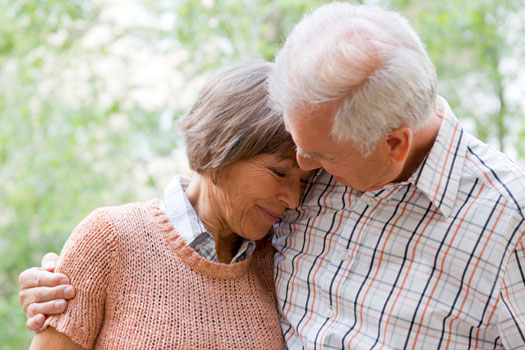Benefits of Psychotherapy
Use Psychotherapy to build and restore your brain and your potential for a rewarding relationship and work life
Through the experience of a healthy psychotherapeutic relationship you can increase your ability to calmly regulate your emotions, since the social and regulatory circuits of the brain are similar.
Strengthen your self esteem
As you become aware of your issues, and what seemed to be your personality limitations you can begin to recognise what your strengths are. In turn you begin to relate to yourself positively as you feel greater compassion towards yourself and others. This enables you to connect more deeply with people.
Resolve relationship struggles and develop your intuition
Through self-inquiry you expand your perspectives of your core beliefs which were formed in early childhood. You learn that they are habitual patterns. Some of these behaviours are no longer necessary and you can choose more satisfactory ways of relating. Having a balanced mind-body allows you to react less, and less automatically to familiar situations. As you become aware of and listen to yourself you can learn to trust yourself and develop your intuition.
Feel more at peace with the uncertainties of life
Difficult emotional responses can be changed when you learn to step back from, observe, and be present with them. These emotions can change over time when we feel them. When there is full presence with what’s happening in the mind-body, real healing can happen, and you can feel less scared about life’s challenges.
Sense more freedom with better boundaries
With psychological education and sensorimotor processing you can strengthen your boundaries, and build your resources to sufficiently respond to difficult memories, and complete effective defensive responses.
Feel present, comfortable and happy
Transform traumatic memories felt in the mind-body so that feeling alive is pleasurable. As you separate traumatic memories from the past that taint your current experience, your life begins to feel like an adventure to be explored and enjoyed.




Hakomi or Experiential Psychotherapy
Research and experience has shown that all you need to be well lives inside you. When we work together you recognise your wholeness as you find your true self. You are the story teller of your life and you discover yourself in the way you tell your story. This gentle method provides opportunities for you to heal in your own way.
Hakomi psychotherapy is grounded in five guiding principles. These are non-violence, mindfulness, organicity, mind-body holism and unity. These principles teach us how to take on an emotional attitude that appreciates our freedom and aliveness. As a result you feel safe because there is a depth and realness present between therapist and client. The organicity principle reminds us to respect life and to trust our capacity to heal. Non-violence is an attitude of going with the grain and staying with what is natural. In therapy non-violence places the emphasis on your experience rather than on the therapist taking credit for your healing.
We need mindfulness to be able to work with what naturally wants to unfold. Mindfulness stems from Buddhism and is an essential psychotherapy tool. Ron Kurtz, founder of Hakomi Body Centered Psychotherapy said, “When there is no mindfulness there is no therapy.” When we work together we are both in a state of mindfulness. Mindfulness is an ability to be with the present moment without judgment. It is a slowing down, an opening to, and an allowing of what is present here in this moment. The process of mindfulness therapy involves asking yourself in a quiet and friendly way, “What is really here?” When you establish an environment of having a friendly feeling towards yourself you give yourself a fair hearing. Sometimes it takes time to really hear what is present. It helps to wait a few minutes to hear from your internal self. Mind-body holism explores how your mind and body influence each other. Together we become curious about how deeply held beliefs, impulses, images and early memories are influencing your body structure and sensations.
The final principle is unity which holds that parts make up a whole. Unity reflects your need to feel you belong, that you feel heard and you can hear. For example, you can discover suppressed parts of yourself and encourage these parts to communicate. As a therapist, the skill is to bring your emotional parts out of hiding and into a place of safety where each part can speak openly and directly again. The real craft of a good therapist is the ability to recognize what is developing and what wants to be expressed in each moment. Often unconsciously as a client you know what behaviour is holding you back and you feel a longing to move beyond a personality limitation.
People are understood as self organising systems, organised psychologically around core memories, beliefs and images. Core material is what shapes people’s lives, and is expressed in our habits and images of ourselves. In therapy a person can become aware of their feelings, behaviours, and thoughts influenced by core material involving distinct themes, such as safety and belonging, support, love and appreciation, freedom and responsibility, openness and honesty, control, power, sexuality and membership. Sometimes people begin to realise that some of these automatic ways of experiencing life are causing them suffering. Hakomi therapy uncovers these habitual patterns which tell us what we do, and how we do it. Hakomi supports people to move towards a natural unfolding of seeing things in a new way. When we make our beliefs conscious like this, we can awaken ourselves to improved choices and ways of relating.
Sensorimotor Psychotherapy
Sensorimotor psychotherapy recognizes that trauma takes place firstly in the body, affecting muscles, and movement of the body. We then develop beliefs about ourselves and circumstance as a consequence of what is occurring in our bodies. Sensorimotor psychotherapy works with the body and the nervous system to quiet anxiety. Dr Pat Ogden, founder of the Sensorimotor Psychotherapy method says, “if we learn to listen to what the body is saying … then we have a way to heal the trauma, through the body.”
There are two parts of the brain that control how trauma affects us. These are the reptilian brain stem and the neo cortex found in the prefrontal lobes of the brain. The reptilian part of the brain historically has learnt to look for predators. It detects danger first, automatically sending a smoke alarm to the amygdale, the almond shaped section of the brain, which shuts down the neo cortex’s capacity to think rationally.
We work with the body directly to calm the lower levels of the brain to feel safe and then notice how that changes thought processes. When there are reminders of past trauma, including memories of trauma, this triggers the neural-circuitry in our brains, and the muscular patterns in the body respond experientially as if the trauma is happening right now.
It’s useful to maintain a calm, thoughtful pace with you as you develop your ability to regulate your body sensations, movements and emotions. Human beings look for safety in others through the social engagement part of our brain. We engage with others through the tone of our voice, through listening to the words spoken, through seeing facial and body language, and through talking to each other. Good interactions with others enable us to feel safe and present. Conversely when we perceive danger we retreat into a trance-like state, where we experience fight, flight or a collapse response even when the perceived danger is not real. It is just that our body holds the memory of the past trauma. If the memory has not been transformed. Then we are likely to be triggered by a present moment experience in our environment that is reminiscent of the traumatic event. This can feel like the trauma is happening again.
Responses to trauma are more likely to be transformed when we help you to take assertive action and feel in control of your situation. This is important because trauma often involves feeling out of control. Research shows that if you can take action and do something positive there is less chance of you feeling traumatised.
Transformation happens when we are empowered to employ new responses to a traumatic incident. With new confidence comes new strength and the natural ability to protect ourselves. Transformation occurs when we help you to integrate the trauma in your body with your mental processing. This enables you to be more present in your current reality, and to respond more effectively in life.
Using Psychotherapy for Couples Therapy
We work with couples to explore and experiment with your experience in a state of consciousness called mindfulness. We engage you in evocative experiments in a state of self observation. The experiments can be about your non-verbal behaviours, body posture and sensations, the pace of your speech or the words you speak. This profoundly deep, yet safe technique reveals how unconsciously you are effecting your partner in your relationship. With compassionate and mindful attention you can learn how your childhood hurts are impacting upon your current relationship. We build a therapeutic alliance and progress in a sensitive and gentle way creating safety around aspects of yourself that feel vulnerable.
The purpose of couples therapy is to assist you to be freed from the rigidity of your characterological limitations which are reinforced by interactions you have with your partner. Our task is to provide an environment where each person can embody more of their unique selves. This occurs as we manage the flow of consciousness between you and your partner and gather information whilst we are in a state of mindfulness. You are assisted to immerse yourself in your experience so you can unfold organically toward greater health.
The therapeutic management of your consciousness is designed to help you become more conscious about who you are and how you are organised around your habitual patterns of relating. Experiential therapy relies on you being an expert of your own experience, while we are trained to support you to stay in your experience long enough for information to be gathered about you on a felt level. As you begin to feel your inner truths you and your partner have an opportunity to explore alternative behaviours and heal your relationship difficulties.
This method proceeds quickly and effortlessly because it is immediate and you have first hand experience of your own truth. What we find so exciting about working with couples is that not only do couples discover themselves, they also discover each other and their relationship. Couples can establish a positive relationship with their partner as they learn to listen to each other beyond words. When we introduce experiments which you can explore, such as sensing your body sensations and movements, you can expand your abilities to be present with your partner beyond just listening and speaking. A body sensation, movement or impulse can yield more information about our personal experiences. As your therapist our role is to facilitate, rather than be the expert and interpret you.
We inspire you in the natural unfolding of your experience. As you slow down you develop an observing ego that can see and feel more of the subtleties of your inner life. For this to occur we track and contact you with words in your immediate and present time experience. Our aim is to help each person to discover deeply personal and meaningful experiences, and to find ways to support each other in their relationships. When you find your experiences meaningful you discover your own healing and health.
Psychotherapy Group Work
Group work is an effective way to learn new skills and build on existing ones. We learn best when we utilise as many of our senses as possible. As the Chinese philosopher Confucius said, “I hear and I forget, I see and I remember, I do and I understand.”
We build a contained therapeutic space that holds the safety of the group, and models your capacity to trust your healing processes. We encourage a non-judgmental and loving presence approach to your learning, growth and healing. Learning opportunities present themselves through your experiences, and by experimenting with mindfulness exercises, art therapy, and reflective learning.
Our healing is helped by visualizing how we would like things to be. Through the choices we make we can create change and this empowers us to reach for our goals. This process of growth can sometimes feel chaotic or confusing as we try out new behaviours. It is having confidence, being motivated, and seeking support that can get us through this challenging growth process. The group container provides this support.
Our therapeutic interventions invite an exploration of your beliefs and how these are influenced by family themes, emotions, relationships, and patterns of behaviour. These aspects shape how we relate with our environment. We can study how this happens with a simple exercise of being mindful of how we move toward, or move away from something we like.
These practical exercises build on your existing skills, talents and strengths. We recognise that you bring prior learning experiences that contribute to the collective wisdom of the group. This in turn provides fertile ground for participants to support and learn from one another.
An attitude of respect and curiosity for the learning and healing processes creates a culture of openness, and the ability to develop new perspectives of yourself and your view of life. This new information changes the way you relate to yourself and to other people.
As your perception of an event changes, your circumstance also shifts taking on a brighter and happier meaning. Succeeding with a small goal often results in a positive snow ball effect on your life as a whole as one event impacts another.
Psychotherapy Resource List
Helpful Books, People & Website Links.
- Body Centered Psychotherapy The Hakomi Method by Ron Kurtz
- Grace Unfolding by Ron Kurtz
- The Body Reveals coauthor Ron Kurtz
- Hakomi Mindfulness-Centered Somatic Psychotherapy a Comprehensive Guide to Theory and Practice by Halko Weiss, Greg Johanson and Lorena Monda
- The Handbook of Body Psychotherapy and Somatic Psychology by G. Marlock and H. Weiss
hakomi.com.au
- Trauma and the Body by Pat Ogden, Kekuni Minton and Clare Pain
- Sensorimotor Psychotherapy Interventions for Trauma and Attachment by Pat Ogden and Janina Fisher
sensorimotor.org
- Internal Family Systems Therapy by R. Schwartz
selfleadership.org
- The Power of Now by Eckhart Tolle
- A New Earth by Eckhart Tolle
eckharttolle.com
- Focusing by Eugene Gendlin
focusing.org
- Extraordinary Relationships a New Way of Thinking About Human Interactions by Roberta M. Gilbert
- Reginald Ray, Meditation Teacher
